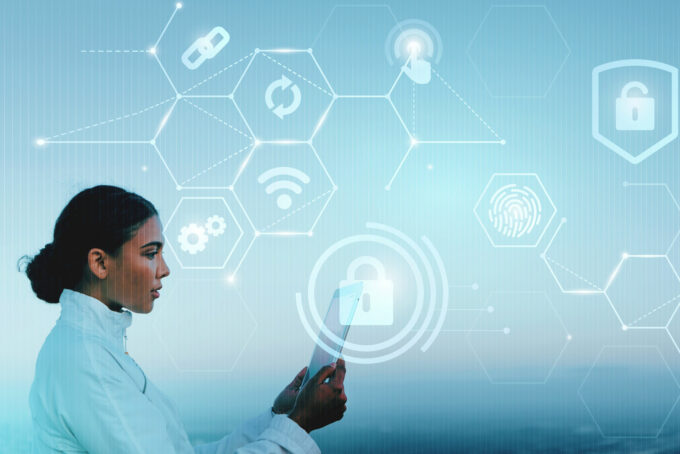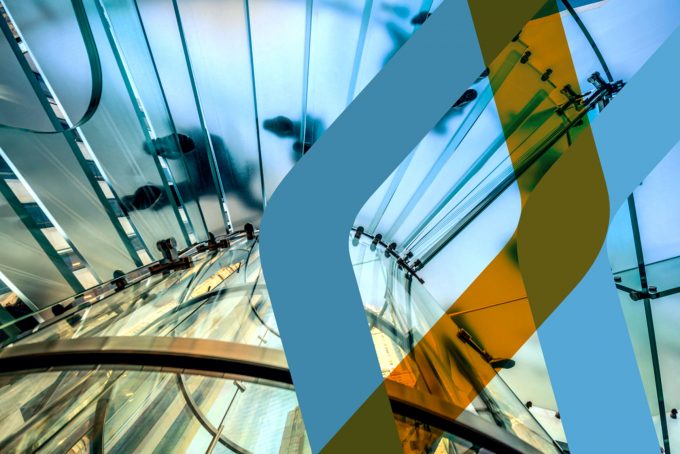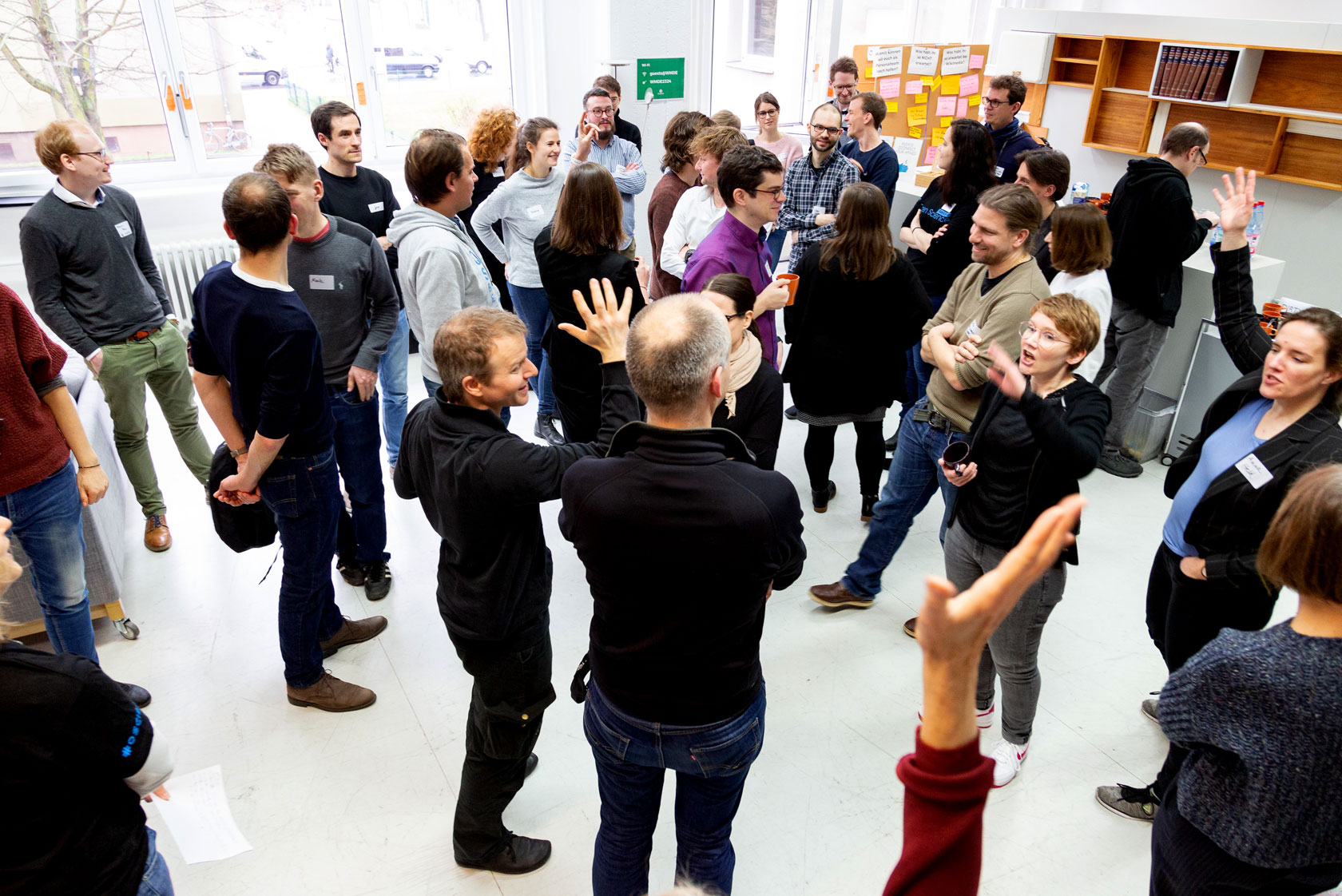
Barcamp Open Science: Learning to Make a Difference
“Go to Berlin, visit the Barcamp Open Science. This will be a nice introduction to Open Science for you and you will meet a lot of important stakeholders there.” This statement of one contributor perfectly summarizes what the Barcamp Open Science provides. See what else happened at the Barcamp.
by Susanne Melchior and Guido Scherp
This year’s Barcamp Open Science, organized by the Leibniz Research Alliance Open Science, took place at the 10th March 2020 at the facilities of our host Wikimedia Germany in Berlin. Due to the first effects of the Covid-19 pandemic, we had fewer contributors than usual, but still managed to gather fifty highly motivated persons at this year’s Barcamp.
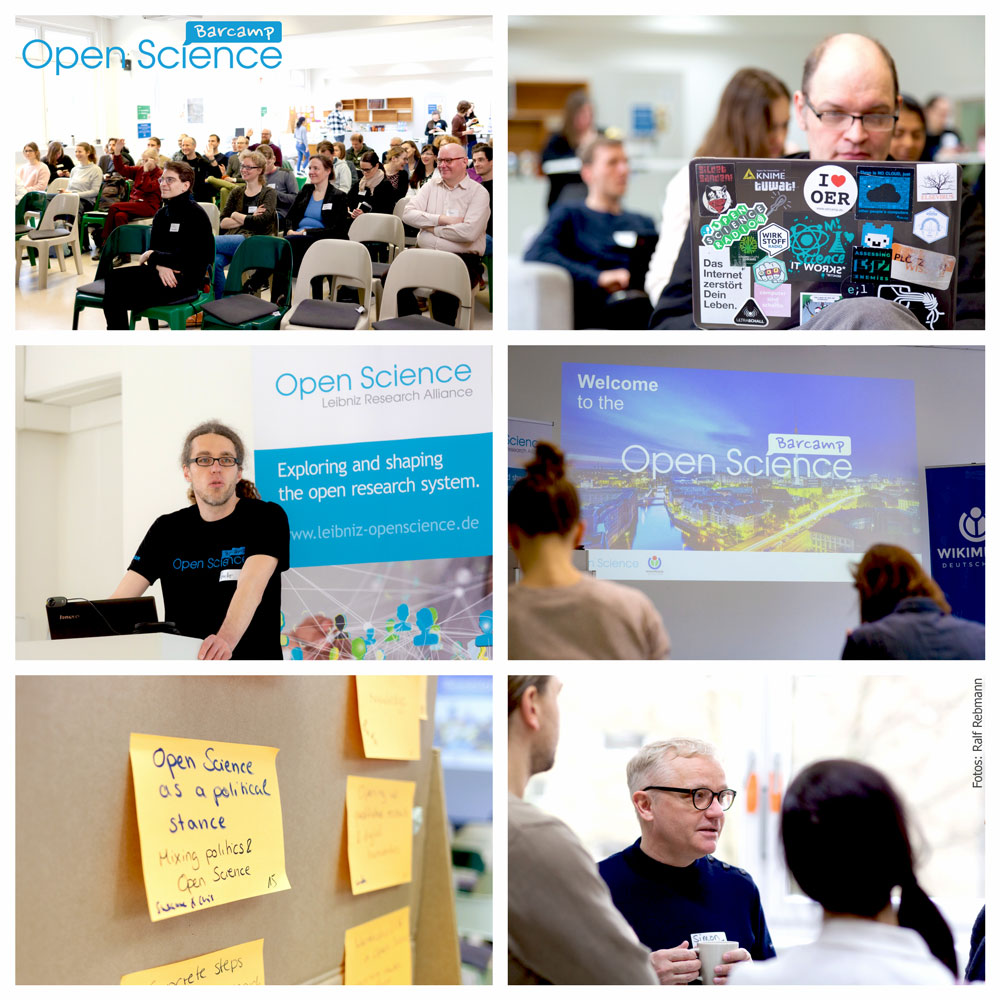
The introductory round illustrated once more how diverse the background from all the contributors at a Barcamp Open Science is: From library and infrastructure staff, through staff working in Open Science projects to scientists – all came to Berlin to share their experiences and to discuss challenges around the implementation of Open Science practices. And more than once we heard a sentence like “that sounds interesting, we have to talk”. This underlines that beside an intensive information exchange the Barcamp Open Science provides an ideal space for networking.
Changing the current citing and reward system in science
A lot of sessions revolved around the current reward system in science and how to change it in order to truly grasp the variety of scientific output. One proposition was the implementation of so called “contributor lists” for publications as replacement for “author lists” which was discussed in an according session. The status quo of citation-based rewarding for researchers happens mainly through author lists of a paper. But research and its output changed and traditional author lists fail to distribute the reward fairly today. Contributor lists want to capture who did what in any research activity. Within a project in the Life Sciences a CRediT taxonomy (PDF) was developed describing specific roles in research, for instance writing the manuscript, validation of the results and getting the research funding.
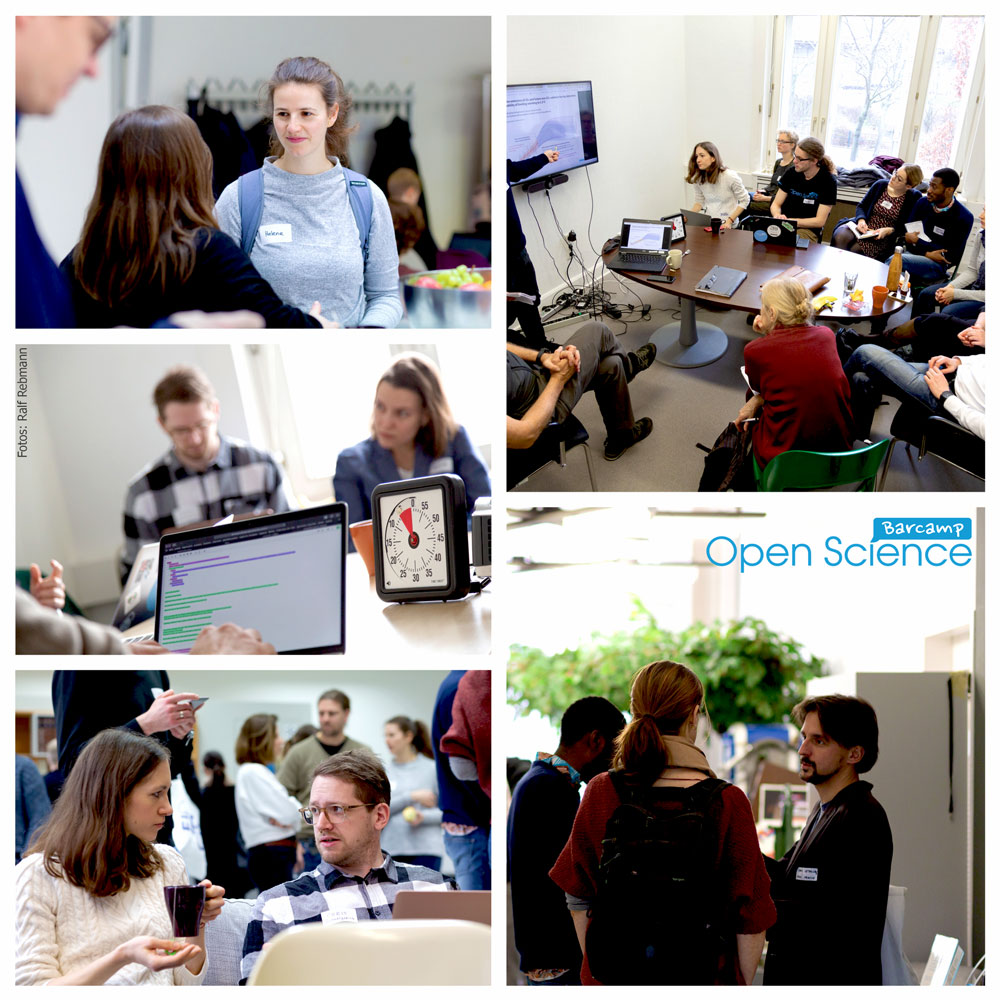
Another recurring topic when it comes to the citation of scientific output is how researchers can get credit for the research software they implement and use for analyzing their data and how to make it discoverable for others. This problem was addressed by the session on “Research software discovery”. Here, the main challenge is that research software is often not published or can only be published in software journals that are uncommon in most disciplines. Thus, research software from others is hardly discoverable and it is hard to get credits for developing it. This is were libraries can play an important part: Their role in the future can be to help scientists use established systems like Github or Zenodo to publish research software and to make it discoverable. The latter aspect was also addressed in a session about “FAIR research software”.

In recent years, the role of preprints and Open Peer Review were also addressed in the scientific community. In the Session “Preprints and Open Peer Review” their interdependence was thematized. The popularity of preprints mainly results out of the fact, that they are speeding up the process of getting your research out. The session highlighted that Open Peer Review can function as a valuable part of the preprint culture because it makes Peer Review more transparent and gives credits and recognition to reviewers.
Supporting researchers in doing Open Science
Similarly to previous Barcamps Open Science, there were a good number of sessions revolving around different aspects of how researchers can be supported in doing Open Science. In the session “Mentorship and Community Building” the moderators presented how they created the Dutch initiative “Open Science Community Utrecht”.
Here’s another episode from the Barcamp Open Science. This time it’s @konradfoerstner talking to @ZSjoerds and @LoekBrinkman about community building and mentoring in Open Science. Well worth looking at our neighbors in the Netherlands…https://t.co/SrkghUKRwY#oscibar
— Open Science Radio (@OpenSciRadio) April 2, 2020
The goal of this project is to install Open Science as a new norm for Dutch scientists. They do this by connecting different disciplines at one university within an Open Science Community, where researchers can share their experiences with Open Science in practical sessions.
The need for training material also became clear in the session “Concrete steps towards FAIR data as prerequisite for Open Scholarship in the Arts and Humanities”. Thereby, the chance of getting some additional research funds was discussed as motivator for practicing Open Science. In the session “Open Data Impact Award” the Open Data Impact Award planned by InnoSci (German) was introduced and the contributors were asked for input on how to concretize the evaluation criteria for the award. Everybody agreed that those awards are needed to increase the visibility of open practices, but it is challenging, for example, to measure impact which is also differing across disciplines.
The need for exchange on the role of science as such
There also were some heated debates taking place at this year’s Barcamp Open Science. One concerning the relationship between science and politics was covered in the session “Open Science as a political stance”. The discussion showed that there are distinct differences between a political and a partisan scientist. Two other sessions, “Language Diversity in Science” and “Open Climate Change”, underlined the demand for decolonising scientific knowledge and tackling climate change, two very contested issues in science in general. All three sessions showed that there is a pressing need for researchers to constantly evaluate their own role in society, despite of the ideal of the independent scientist in higher education.
I really loved the one-on-chats especially talking with @NehaMoopen about challenges with research-based careers in developing countries. #Sci4D #oscibar
— Gameli Adzaho (@gamelmag) March 10, 2020
This challenge has become increasingly important in societies where fake news are spread and populists are trying to discredit scientific discoveries.
Learning to make a difference
We tried to highlight some of the diverse topics discussed at this year’s Barcamp Open Science. A lot is happening in the vivid Open Science community and current global challenges like the Corona pandemic show the need of fast and credible scientific outcomes, and how this gives a push for open practices, open innovation, and science communication. Thus, in contrast to a rather practical focus last year, we had more discussions and sessions around Open Science on a meta level. The Open Science community comes up with a lot of solutions and now has the opportunity to get the word out and convince all those involved in the scientific system to apply these solutions across the board and dissolve traditional patterns.
As always, we were lucky that the team of Open Science Radio was present at our Barcamp and interviewed all session moderators. You can find all interviews here.
Further information around Barcamp Open Science
- More photos (CC-BY)
- Contributor list and links to all session pads
Barcamp finished, the team is happy😃 Thanks to all contributors! Have a nice stay in Berlin and see you next year. #oscibar pic.twitter.com/df4qImEF2e
— Guido Scherp (@Guido_Scherp) March 10, 2020
Susanne Melchior | Coordination Assistant of the Leibniz Research Alliance Open Science.
Dr Guido Scherp | Head of the “Open Science Transfer” department at the ZBW and Coordinator of the Leibniz Research Alliance Open Science.
Photos: Tobias Rebmann
View Comments
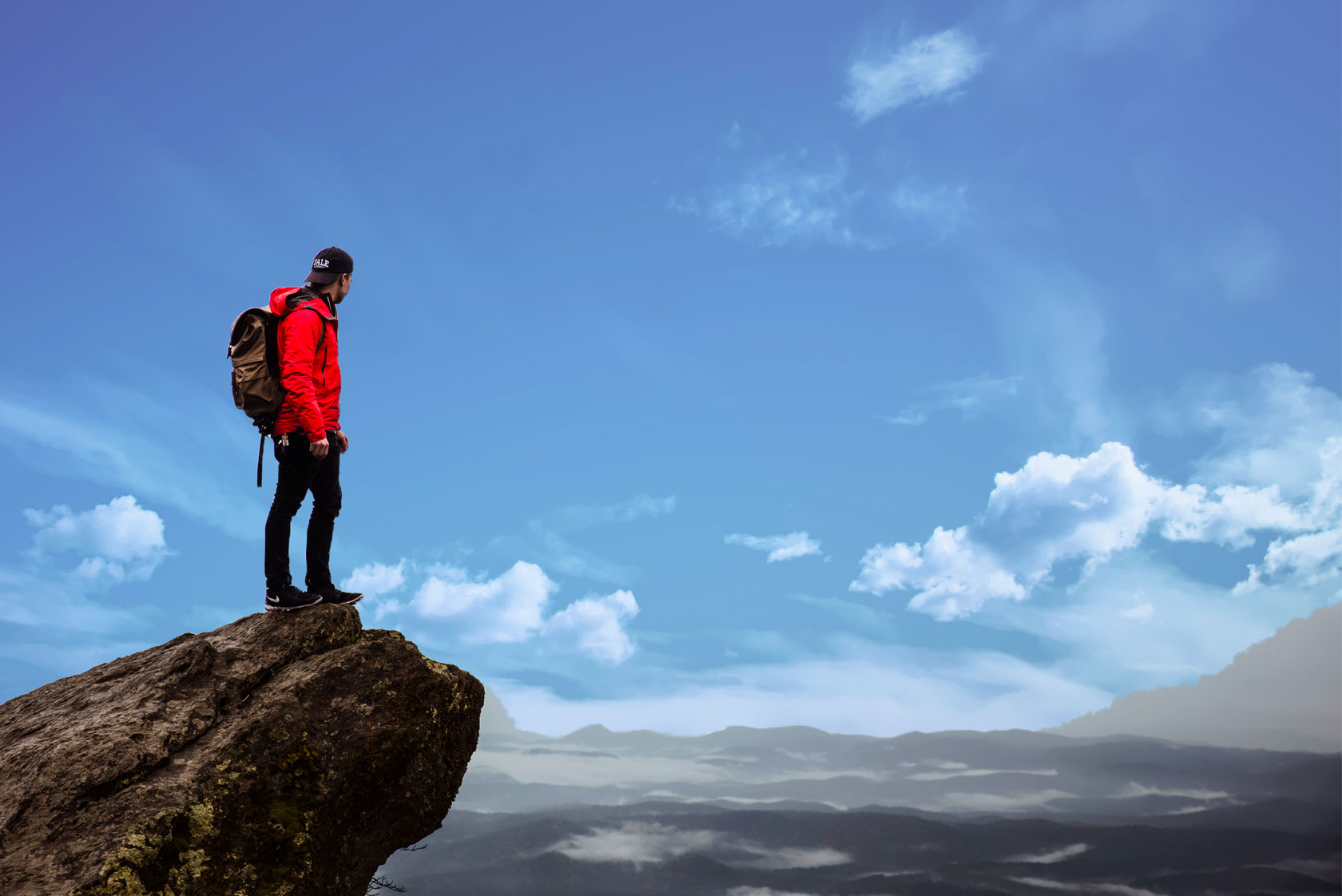
Horizon Report 2020: AI, XR and OER Begin to Catch on in Higher Education
The recently released new Horizon Report on Teaching and Learning covers again...

